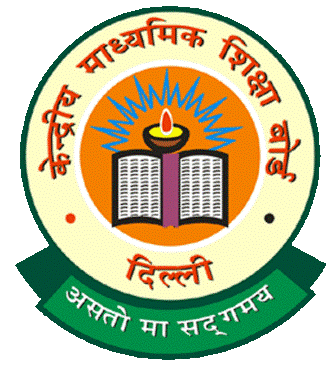CBSE 8th Class Social Syllabus 2022: We are Providing 8th Class Social Subject complete Syllabus Download PDF CBSE Syllabus that includes from the Class VIII to Class XII, provides all the necessary information such as the course content, CBSE Syllabus For Class 8 Social Science 2021-2022 NCERT Class 8 Social syllabus PDF Download Here
| Units | Topics |
|---|---|
| Term I | |
| 1 | Emergence of New Ideas: Renaissance in Europe |
| 2 | Renaissance and Humanism |
| 3 | Renaissance in Art and Literature |
| 7 | Basic concept of Weather and Climate |
| 8 | Resources |
| 12 | Constitution |
| 13 | Kinds of Constitutions (Case Studies) |
| 17 | Why Nations Trade |
| Term II | |
| 4 | Renaissance and Science |
| 5 | Renaissance and Religion |
| 6 | New World Order |
| 9 | Natural Regions of the World I |
| 10 | Natural Regions of the World II |
| 11 | Natural Regions of the World III |
| 14 | Peace and Conflict Resolution: Meaning; Coexistence; Causes |
| 15 | Need for Peace in the Society and Combating Terrorism |
| 16 | Importance of Economics in Human Life |
Contents
Course Syllabus
Unit 1: Emergence of New Ideas: Renaissance in Europe
- Meaning and Definition of Renaissance
- Rebirth and Cultural changes of this period
- Growth of Urban Culture and Revival of the Towns
- New disciplines (subjects) taught
Unit 2: Renaissance and Humanism
- Growth of humanist culture in Italian Universities
- Man as an individual, capable of making his own decision and developing his own skills
Unit 3: Renaissance in Art and Literature
- The Work of great artists like Leonardo -Da- Vinci, Michelangelo, Donatello, etc
- The new style of architecture the “Classical Style”
- The element of realism added to art and architecture by studying, Geometry bone structures, use of light and oil
- Printing of Classical texts which helped in spreading the torch of knowledge amongst readers
Unit 4: Renaissance and Science
- Development of Scientific thinking
- Humanism and Science
- Scholastic thinking and Science
- Role of Print Media
- Scientific revolution
Unit 5: Renaissance and Religion
- Decline of Catholic Church
- Religious Growth
- Protestant Reformation
- Protestant Movements
Unit 6: New World Order
A. Industrialization of Europe: The Industrial Revolution
- Industrial Revolution
- Growth of new Cities
- Urban Migration
- Changing Economy
- Inventions and Inventors
- Impact of Industrialization on Handicrafts and Cottage Industries
B. Capitalism
- The Concept and the Meaning of Capitalism
- Difference between Haves and Have-nots
- Factor giving birth to Capitalism
- Characteristic Features of Capitalism
C. Colonization
- Concept of Colonization
- Role of Mother Country
- Political, social and economic changes in the ruled country
D. Imperialism
- Drain of wealth from the ruled country to the mother country
- Meaning − Social political and economic domination of one country over the other
- Causes for the growth of Imperialism
Unit 7: Basic Concepts of Weather and Climate
- Concept of weather and climate
- Elements of weather and climate
- Temperature
- Pressure
- Wind -Surface and Upper Air Circulation
- Humidity – Absolute, Relative
- Precipitation and types
- Correlation between temperature and pressure
- Concept of isotherms, isobars.
- Local weather conditions
- Chief characteristics of Tropical,Temperate and Polar regions
Unit 8: Resources
- Resources and their types −
- Natural
- Human
- Classification of resources based on utility, renewability and sustainability
- Types of resources −
- Land – Soil
- Vegetation
- Wildlife
- minerals
- Water
- Human
- Need and conservation of resources
Unit 9: Natural Regions of the World – I
- Equatorial region
- Savannah Region
- Hot Desert Regions
- Location
- Climate
- Natural vegetation
- Animal life
- Human response
Unit 10: Natural Regions of the World – II
- Mediterranean Region
- Temperate grassland
- Temperate Desert Regions
- Location
- Climate
- Natural vegetation
- Animal life
- Human response
Unit 11: Natural Regions of the World – III
- Coniferous Forests
- Tundra Region
- Location
- Climate
- Natural vegetation
- Animal life
- Human response
Unit 12: Constitution
- Meaning, Features, History and growth
- Meaning of the term Constitution
- Key features of the Constitution
- History of the growth of the Constitution
Unit 13: Kinds of Constitutions (Case studies)
- Kinds of constitution −
- Codified
- Uncodified
- Rigid
- Flexible
- Case Studies: Constitutions of England (uncodified) and India (codified)
Unit 14: Peace and Conflict Resolution: Meaning; Co-existence; Causes
- Meaning of the terms ‘peace’ and ‘conflict’ resolution’
- Co-existence of peace and conflicts in a society
- Peace as a natural social condition
- Kinds of conflicts −
- Economic
- Socio-cultural
- Political
- Religious
- Causes of Conflicts
Unit 15: Need for Peace in the Society and Combating Terrorism
- Need for peace
- Need for Peace Education in schools
- Concept of Terrorism
- Effects of Terrorism on various aspects of society
- Case studies: WTC destruction, Militancy activities
- Role and responsibility of citizens in combating Terrorism
Unit 16: Importance of Economics in Human Life
- Importance of economics in human life
- Concept of
- Demand
- Supply
- Trade
Unit 17: Why Nations Trade
- Meaning of trade
- Concept of Domestic trade
- Concept of International trade
To download PDF: Click here
CBSE social Text Book: Click Here

